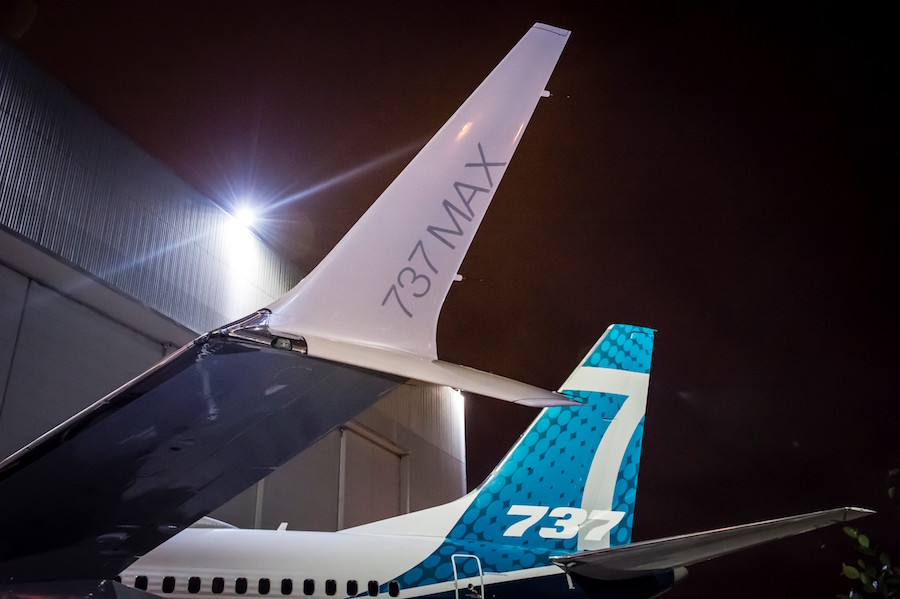
Boeing is suspending production of the 737 MAX in January. Photo: Boeing
Boeing is suspending 737 MAX production next month to prioritize the delivery of 400 newly manufactured aircraft in storage and allow time for civil aviation authorities to approve updates that will clear its return to service.
The grounding of the global 737 MAX fleet has reached nine months, after separate Ethiopian Airlines and Lion Air flights crashed, killing 346 passengers and crew. A decision to stop production of the MAX comes as Boeing continues to await approval from civil aviation authorities on software updates designed to fix the maneuvering characteristics augmentation system (MCAS) system that contributed to the two crashes.
“The decision to suspend 737 MAX production was based on a thoughtful assessment of a variety of factors. We are keeping our employees, customers and supply chain top of mind as we prioritize safely returning the MAX to service,” Boeing CEO Dennis Muilenburg said in a tweet announcing the decision to stop production.
Production of the MAX has continued since the start of the grounding on March 13, resulting in a total of 400 aircraft currently in storage awaiting delivery. In a statement confirming the decision to stop production, Boeing said certification of the updates to the MCAS system have been extended into 2020.
No furloughs or layoffs are expected as a result of the decision to halt production next month. Boeing said that “affected employees will continue 737-related work, or be temporarily assigned to other teams in Puget Sound.”
Notice of the decision to stop production comes following a congressional hearing involving Edward Pierson, a former Boeing employee turned whistleblower, FAA Administrator Stephen Dickson and several other FAA, military and industry representatives. During the hearing, Dickson provided some insight behind the agency’s approach to certifying the MAX and getting the fleet back in the air.
“As I have stated before, the FAA’s return-to-service decision on the 737 MAX will rest solely on the FAA’s analysis of the data to determine whether Boeing’s proposed software updates and pilot training address the known issues for grounding the aircraft. The FAA fully controls the approvals process for the flight control systems and is not delegating anything to Boeing. The FAA will retain authority to issue airworthiness certificates and export certificates of airworthiness for all new 737 MAX airplanes manufactured since the grounding,” Dickson said.
One of the groups responsible for reviewing the software updates introduced as a fix to MCAS is a technical advisory board consisting of FAA Chief Scientists and experts from the U.S. Air Force, NASA, and Volpe National Transportation Systems Center. Their task is to “conduct an independent review of the proposed integrated system, training, and continued operational safety determination for the 737 MAX,” according to Dixon.
Muilenburg previously provided an outline of the software fix being analyzed currently regarding its ability to correct malfunctioning associated with the 737 MAX MCAS system during two congressional hearings discussing the MAX that occurred in November.
The updates fall under three major fixes to the way MCAS functions, including how the system will now compare information from both angle of attack (AOA) sensors instead of one. Boeing is also updating the flight control software so that it will never provide more input than a pilot can counteract using the control column alone. Pilots will also continue to have the ability to override MCAS at any time.
More information is expected regarding the suspension of Boeing’s highest selling aircraft during its fourth quarter earnings release in January.